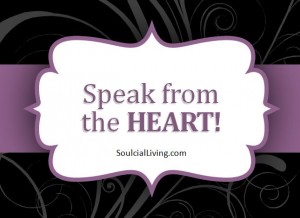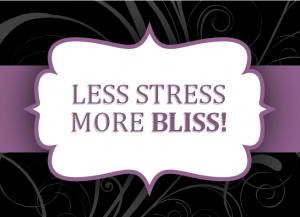
The words we speak, including to ourselves, reveal a lot about us and directly contribute to our own level of happiness. That means our attitudes, beliefs, feelings, and expectations are directly affected by our own words and how we say them
“Expressing words through our heart is an illustration of our soul voice.” Natalie Hennessy
Our words not only communicate what we want others to hear, they have the power to influence and impact the people in our lives. We can use our words to encourage and motivate, just as easily as we can use them to weaken or defeat.
In the Five Mindfulness Teachings world famous Buddhist teacher Thich Nhat Hanh says, “Knowing that words can create happiness or suffering I am committed to speaking truthfully using words that inspire confidence, joy, and hope.” When we speak from the heart, we show that we care about ourselves and the person we are in direct dialogue with.
How do we begin speaking and thinking from the heart?
Choose to speak with love. Making a conscious choice to speak with love, including to ourselves, takes patience and practice. Like a stone begin tossed in a pond, once we begin, the ripples are endless.
Action step 1: Begin with yourself! What does your internal dialogue look like? Often we say things like, “I’m not good enough” or “That was a really stupid thing for me to do”. Recognize what you are saying to yourself and how you say it. Choose to use positive internal dialogue and look at the world that way, too.
Think about and write two positive statements about yourself that you are willing to affirm and act on every day. You are replacing a negative thought you may have had about yourself with a positive one. Your mind can just as easily recognize positives; you may not believe it at first, however, think it often enough and you will believe it and become it! Create your own feel good affirmations.
Action step 2: Practice speaking, with love. Dr. Rick Shaffer, creator of “Extreme Thought Makeover says, “Speak to no one of what displeases you, not even yourself” When in a conversation (including a conversation with yourself) envision every word as if it were coming right through your heart center, gently flowing off the tip of your tongue. See the person you are engaging with through eyes of compassion and kindness. Notice the difference from past conversations and any new patterns that emerge. Write them down. (The written word is so powerful and permanent.)
Action step 3: Complement more than complain. Pay attention to what you say to people. Do you tell your wife/husband/partner what a great job she/he did on dinner? Or your children how much you love being with them after school; how much their mere presence makes you smile? Or your husband/wife/partner how much you appreciate his/her efforts of taking such good care of the family?
Wayne Dyer says, “Change your thoughts, and change your life”. Change your words, change your life and enhance the lives of everyone on your path.

 Stress is Change –
Stress is Change – 
Feedback